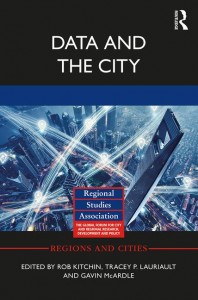Leighton Evans and Rob Kitchin have published a new Programmable City working paper (No. 34): A smart place to work? Big data systems, labour, control, and modern retail stores.
Abstract
The modern retail store is a complex coded assemblage and data-intensive environment, its operations and management mediated by a number of interlinked big data systems. This paper draws on an ethnography of a superstore in Ireland to examine how these systems modulate the functioning of the store and working practices of employees. It was found that retail work involves a continual movement between a governance regime of control reliant on big data systems which seek to regulate and harnesses formal labour and automation into enterprise planning, and a disciplinary regime that deals with the symbolic, interactive labour that workers perform and acts as a reserve mode of governmentality if control fails. This continual movement is caused by new systems of control being open to vertical and horizontal fissures. While retail functions as a coded assemblage of control, systems are too brittle to sustain the code/space and governmentality desired.
Access the PDF here

